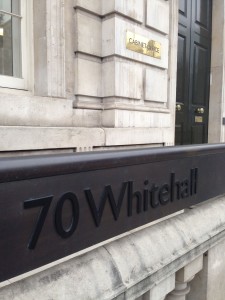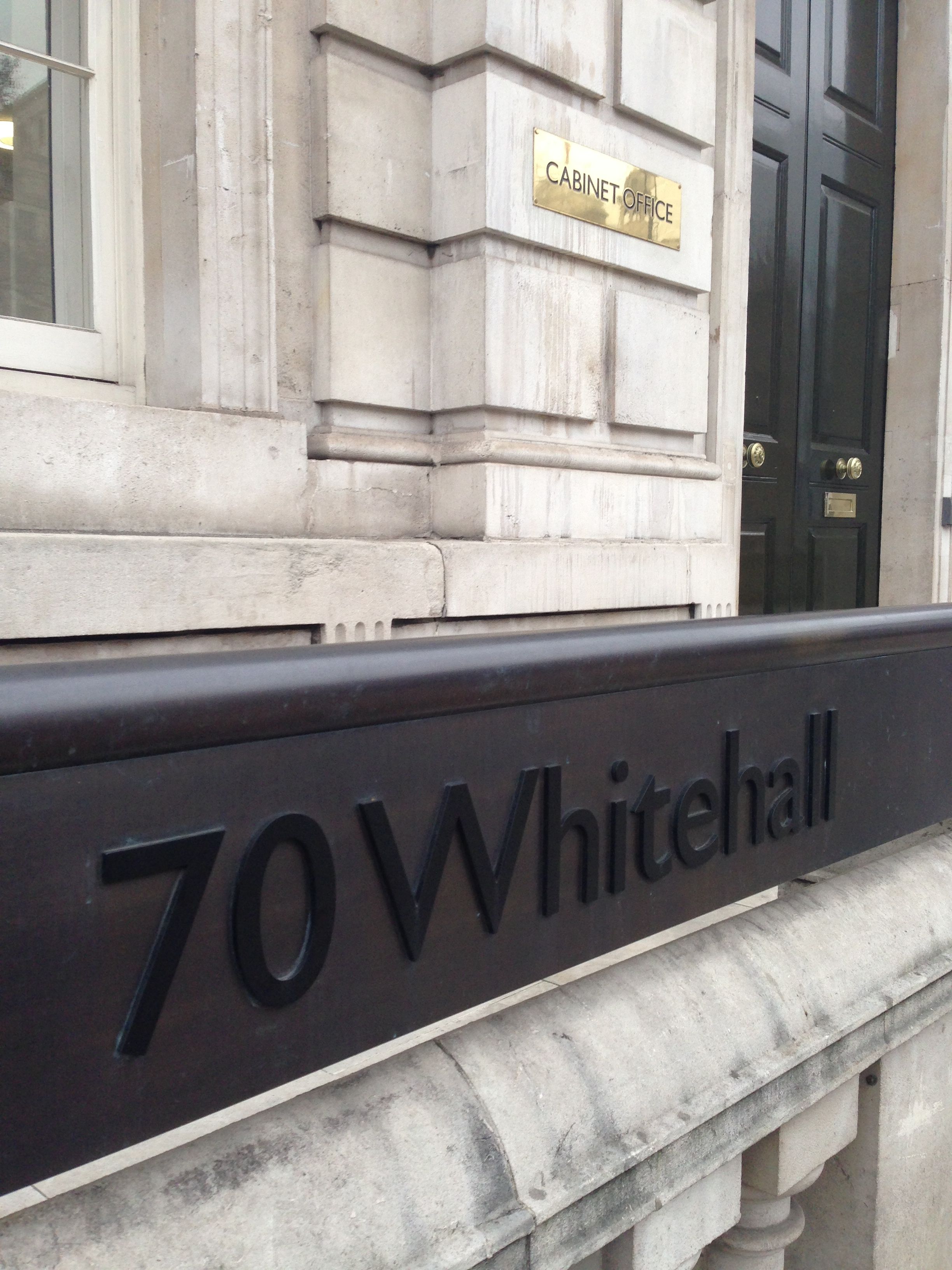
FOIMan gazes into his crystal ball to see what will result from the government’s response to the House of Commons’ Humble Address.
Amongst everything else that happened this very unusual week (although aren’t they all lately), the House of Commons made a ‘humble address’ to the Government requesting access to a document outlining plans for a no-deal Brexit, and perhaps more controversially, communications between certain named civil servants and special advisers relating to the prorogation of Parliament. These communications were to include those in private email accounts, WhatsApp, text messages and various other cited forums.
Late on Wednesday, Michael Gove in his capacity as Chancellor of the Duchy of Lancaster (and therefore in charge of the Cabinet Office and no-deal planning – and come to that, government FOI policy), wrote to the instigator of the humble address, Dominic Grieve, refusing to provide the communications. He argued that it was an improper use of the humble address mechanism to seek such communications of officials. He further suggested that this information would be exempt under FOI, mentioning section 35 (formulation of government policy) and section 36 (specifically maintenance of ministerial collective responsibility), and concerns about breaching the Data Protection Act (as others have pointed out, it would be the General Data Protection Regulation that would potentially be breached, but that’s an academic point in this regard).
A humble address is not an FOI request. And with Parliament prorogued, it is difficult to know what Dominic Grieve and colleagues can do about the Government’s effective partial refusal. So what happens next? And is it going to prove possible for the communications to be disclosed? I’ve polished my crystal ball to gaze into the future. A caveat – all of the following assumes that a political deus ex machina fails to come to the rescue. And assumptions in the current climate are, of course, hugely dangerous… But excepting a change in government or similar that results in a more sympathetic ear to this request, here are my predictions.
First, even if Dominic Grieve hasn’t followed up with an FOI request for the refused communications, I’m sure that the Cabinet Office is right now receiving a deluge of almost identical requests asking for them.
Second, the Cabinet Office will (eventually, as they will almost certainly delay responding to after the 20th working day) refuse these requests claiming variably that they are vexatious (poor harassed Dominic Cummings); exceed the cost limit; and claiming a) the communications are not held, and b) that even if they were, they are exempt under s.35 and/or s.36, or that disclosure would breach data protection laws so they are exempt under s.40(2) of FOIA. It is very easy to challenge the arguments that they will use (see below), but that won’t stop them.
Third, several requestors will (having had no luck with an internal review), complain to the Information Commissioner. The Information Commissioner will discard the vexatious argument (as long as you haven’t been too rude) and the cost argument. We’ve seen before what happens when Michael Gove’s officials use private channels to communicate about their work – so the Information Commissioner would rule that the communications were held as long as they related to government business (which the discussion of prorogation clearly is). Anything not related to the conduct of government business would be excluded so many of the privacy concerns raised by Mr Gove will not be at issue (Gove suggests in his letter that compliance with the humble address would require some sort of intrusive intervention, but as the Commissioner indicated in the decision I’ve alluded to here, and in her guidance, such a search would merely involve asking the individual concerned to supply relevant correspondence – there is no question of anyone else searching through their private communications).
In respect of the communications which are judged to be ‘held’ for the purposes of the request, it is certainly the case that communications will be or contain personal data of the individuals listed in the humble address. However, data protection laws do not prevent disclosure of personal data in all circumstances. Public authorities are expected to consider if there is a legitimate interest in disclosure of the requested data (in this case, Michael Gove himself alludes to the ‘legitimate desire from Parliamentarians on all sides to understand the impact that leaving the EU without a deal would have’ and there is an obvious legitimate interest given the controversy around prorogation of Parliament, including accusations that the Prime Minister lied to the monarch, in the public being able to find out for themselves what the truth of these allegations may be); whether disclosure is necessary to meet that interest (there isn’t another way to find out how and why this decision was reached); and whether the rights and interests of affected individuals override the identified legitimate interest (highly unlikely – these are senior high profile officials who should expect to have their work scrutinised – it’s part of the job). It therefore seems unlikely that disclosure of the requested communications would breach GDPR, so the Commissioner will rule that the personal data exemption does not apply to some (at least) of the communications. The arguments in favour of s.35 and/or s.36 will probably be harder to discount. The exemptions are relatively easy for a determined government department to apply – s.35 is phrased so broadly that it is easy to show that communications fall within its scope. The use of s.36 turns on the opinion of a Minister being ‘reasonable’ – something which whilst it’s easy to snigger at, is easier to demonstrate in law. However, both s.35 and 36 are subject to a public interest test. In the circumstances (and for pretty much the same reasons as there is a legitimate interest in disclosure of personal data), it seems likely that the Commissioner would plump for disclosure of at least some of the communications described. The Commissioner will issue a decision notice to this effect.
There is a risk during this period that the communications are deleted, the officials concerned claiming that they didn’t realise they were subject to FOI. This would put them at risk of prosecution under s.77 for deliberately destroying information which is subject to a current request. However, it is very difficult to successfully prosecute under this provision as the Commissioner would have to demonstrate that the deletions were a deliberate act, designed to thwart the FOI requests, within 6 months of them happening. Despite undertaking several times to make it easier for the Commissioner to prosecute, the government has failed to make this change.
Assuming the Cabinet Office doesn’t suddenly claim that the communications have mysteriously disappeared, their next step will be to veto disclosure. Of course they could just appeal to the First-Tier Tribunal (FTT), but following the Independent Commission on FOI’s report in 2016, the government (in the guise of Matt Hancock at that time) undertook to only use the veto after the Commissioner had ruled, and before any Tribunal involvement, so that the executive would not be seen to be overruling the judiciary.
Beyond this, if anyone still cares (which they might on a point of principle), there may be a judicial review of the use of the veto. Given the ruling of the Supreme Court in the ‘Black Spider Memos’ case in 2015, it would not be surprising if the government lost. Several times. Those who can think back that far will recall that the Supreme Court’s ruling resulted from an appeal against the application of the ministerial veto by the then Attorney General, a certain…Dominic Grieve. Ironically then, Dominic Grieve’s defeat in the past may well help him win in the future. It’s like something from science fiction.
By now, the Cabinet Office (or Boris’s feted SPADs) will be calculating, the year is 2025 (at least). In this dystopian future, nobody gives two hoots whether Nikki da Costa (or whoever) thought closing Parliament for five weeks 6 years before was once considered a sensible option.
It may well be that in this scenario, Parliament and the Freedom of Information Act have been shown to be toothless in their scrutiny of the government. I’m hoping someone sees a flaw in my reasoning above and there is a way to force the Cabinet Office to provide these communications whilst they are still useful to ongoing debate. By rights it seems they should be disclosed – at least in part – but by the time anyone is able to enforce that on a reluctant government, it will in all probability be too late to help anyone save historians of these ‘interesting times’.

